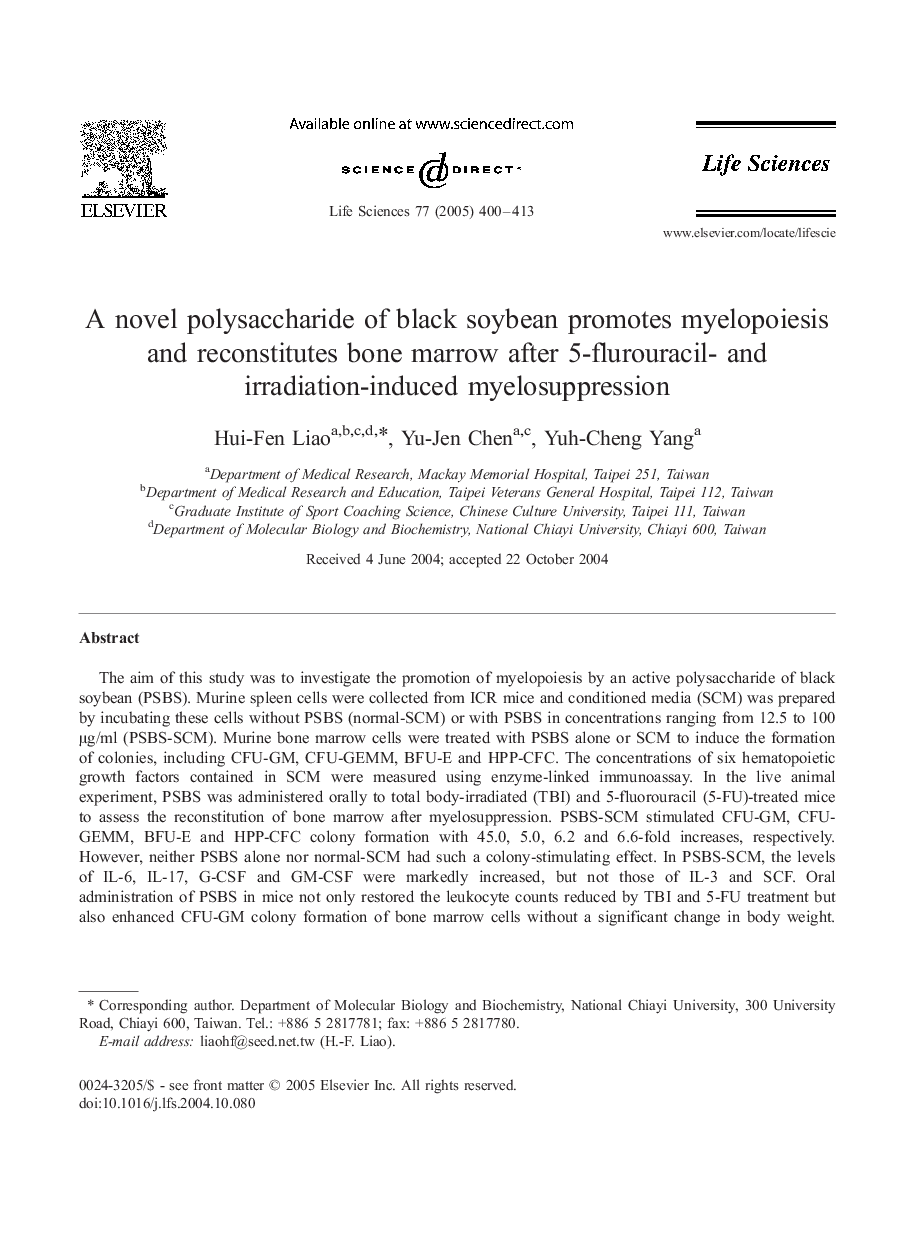| Article ID | Journal | Published Year | Pages | File Type |
|---|---|---|---|---|
| 9012833 | Life Sciences | 2005 | 14 Pages |
Abstract
The aim of this study was to investigate the promotion of myelopoiesis by an active polysaccharide of black soybean (PSBS). Murine spleen cells were collected from ICR mice and conditioned media (SCM) was prepared by incubating these cells without PSBS (normal-SCM) or with PSBS in concentrations ranging from 12.5 to 100 μg/ml (PSBS-SCM). Murine bone marrow cells were treated with PSBS alone or SCM to induce the formation of colonies, including CFU-GM, CFU-GEMM, BFU-E and HPP-CFC. The concentrations of six hematopoietic growth factors contained in SCM were measured using enzyme-linked immunoassay. In the live animal experiment, PSBS was administered orally to total body-irradiated (TBI) and 5-fluorouracil (5-FU)-treated mice to assess the reconstitution of bone marrow after myelosuppression. PSBS-SCM stimulated CFU-GM, CFU-GEMM, BFU-E and HPP-CFC colony formation with 45.0, 5.0, 6.2 and 6.6-fold increases, respectively. However, neither PSBS alone nor normal-SCM had such a colony-stimulating effect. In PSBS-SCM, the levels of IL-6, IL-17, G-CSF and GM-CSF were markedly increased, but not those of IL-3 and SCF. Oral administration of PSBS in mice not only restored the leukocyte counts reduced by TBI and 5-FU treatment but also enhanced CFU-GM colony formation of bone marrow cells without a significant change in body weight. We conclude that PSBS promotes myelopoiesis activity in the bone marrow, stimulates production of various hematopoietic growth factors from spleen cells, and reconstitutes bone marrow that has been myelosuppressed by irradiation and 5-FU.
Keywords
Related Topics
Health Sciences
Medicine and Dentistry
Cardiology and Cardiovascular Medicine
Authors
Hui-Fen Liao, Yu-Jen Chen, Yuh-Cheng Yang,
